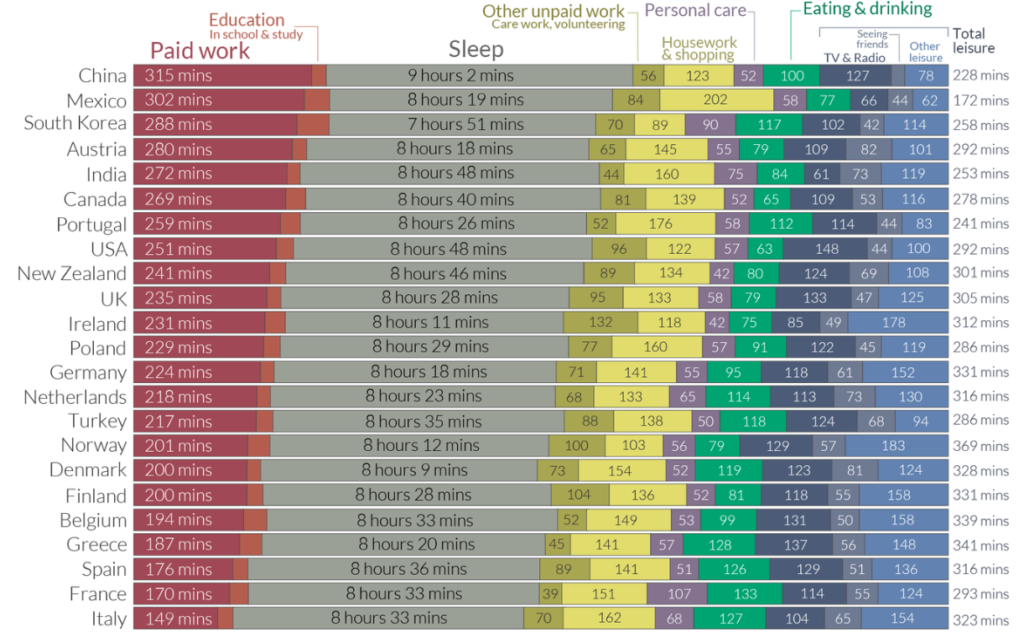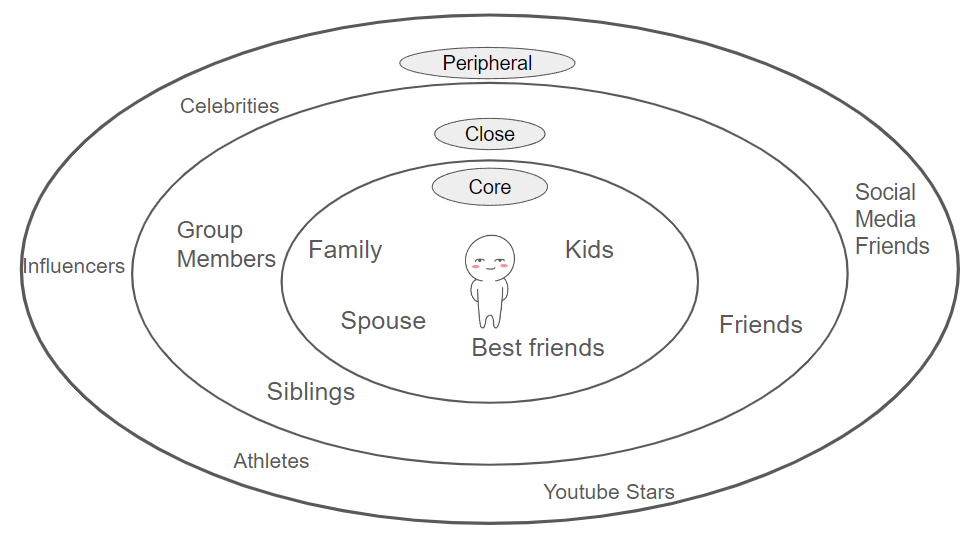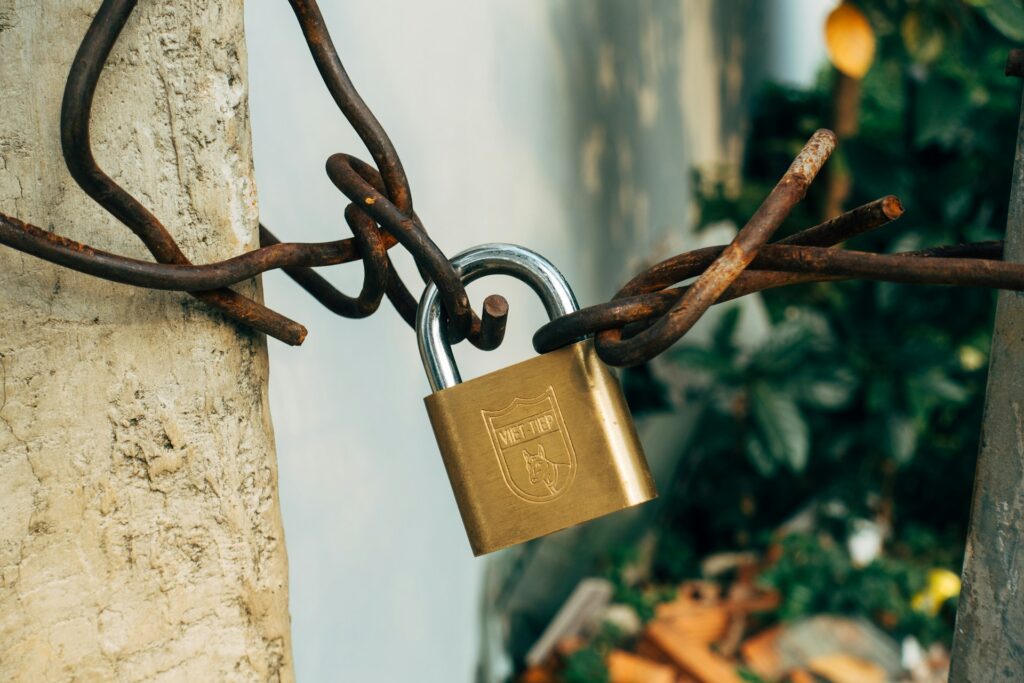
Protect Your Time
I usually write posts based on things going on in my own life that I think would also be of interest to others. This one’s no different as I’ve turned my attention to ways I can go about better protecting my time.
The last six months have been a blur. I’ve met a lot of new people and have made quite a few friends. My dating life has also thrived. The problem? All of this socializing has stretched my time to the point that I’m no longer as happy or productive as I know I could be.
That’s the conundrum that is the impetus of this post.
As such, this article is for you if you are also looking for guidance on how to reclaim and protect your time. This is my thought experiment and blueprint on how I can capture back my time which is the most precious resource any of us have.
Contents
Why You Should Protect Your Time
As far as I’m concerned, the biggest reasons for protecting your time are so you can maintain optimal levels of peace and productivity which are ultimately required for your prosperity. It’s hard to ever become rich if we are constantly tired, stressed, and distracted.
In my busyness of late, I’ve done a great job at meeting my goals of consistently writing for the blog and going to the gym. But, I’ve also let slip other important things such as recording the podcast and taking care of tasks at home.
If you give it some thought, you’d probably find that your time management issues are causing you some form of stress and hindering you from getting things done. In other words, poor time management is likely negatively impacting your peace and productivity.
If so, you should feel motivated to learn to protect your time.
You Should Protect Your Time For Peace
Peace is characterized by a state of calm in our lives. We usually experience peace when things are going well or when our lives are in order.
Protecting our time is important for peace because we need ample time to manage our lives well enough to keep it in order. Thus, we need to protect our time to ensure peace.
For example, I enjoy late nights on the town but they leave me tired. And when I’m tired, I don’t perform well at work and the gym. In the end, I start fretting over not being my best in things that are important to me which make me more anxious and less at peace.
You Should Protect Your Time For Productivity
The primary input to productivity is time. Therefore, we must protect our time if we want to achieve maximum productivity.
Consistent writing, publishing posts, managing technical details, and recording podcasts takes up a lot of time. Throw on top of this a full time job, gymming five days per week, and socializing – and it’s a wonder how I manage it all.
And while I do technically manage it all, I’m not operating at the level I’m capable of thanks to being spread thin and lacking focus.
Fixing this is my reason for making the changes that I’ll discuss in this post.
The World's Richest Man Protects His Time
I believe prosperity is the net result of greater peace and productivity. It’s hard to imagine not succeeding when we narrow our focus, eliminate distractions, and reduce stress.
But don’t take it from me.
The following video is a TED Talk given by the ex wife of Elon Musk. At one point in her discussion she talks about Elon’s approach to protecting his time.
In short, he protects his time by using the word no a lot.
If protecting your time is worthy enough for the world’s most prosperous man, it’s worthy enough for me. And what follows is how I plan on doing so in my own life.
The Process Of Strategically Protecting Your Time
Without further ado, let’s discuss ways to protect your time.
As mentioned earlier, this is my personal thought experiment for protecting my own time. As such, the steps outlined below are ones I will try to implement to reclaim my own time.
Protect Your Time By Understanding You Can’t Do It All
Contrary to the awesome movie of the same title, it’s impossible for me to be everywhere and do everything all at once. We can only occupy one space at a time. And we’re limited to only 24 hours each day – of which a third are spent sleeping.
I’ve struggled to appreciate this concept as of late, but have recalibrated my approach to dedicate the majority of my time to the things that matter most.
In terms of what those are, let’s talk about them next.
Identify What’s Most Important In Your Life
Working and raising a family are enough for most people. Yet, we usually have a host of other responsibilities such as maintaining the home, cooking food, managing the finances, and having some fun. As a result, it can be easy to get stuck in the rut of simply treading water as we barely maintain all of the life activities that are on our plates.
Yet and still, if the ultimate goal is to prosper, this situation won’t do because we can’t possibly expect to achieve greatness while in a state of barely getting by.
So, what’s the solution?
The solution for dealing with many competing responsibilities for our time is to pare things down to what’s most important. Here’s a fun and insightful way you can go about doing that.
Step 1: Think About What’s Important To You
Start by thinking about what’s most important to you. This may seem obvious, but do it anyway. Jot down your results.
The most important things in life are my health, my family, this blog, my career as a writer, and my freedom. I’ll also add to this list my day job since it’s the ultimate enabler of my current lifestyle. And finally, I will throw in my relationships with friends.
Having this list is important because it will form the basis for how we make adjustments in upcoming steps.
Step 2: Identify Where Your Time Actually Goes
The next step is to refine our schedules for better focus by understanding where our time is currently going.
That said, sleep, work, eating, and leisure seems to be how most people generally spend their time:

Also, here is a sample breakdown that drills further into the commitments we find common across our schedules:
- Full time job
- Commuting
- Education
- Shopping
- Volunteering
- Cooking dinner or eating at restaurants
- Tending to the family
- Tending to the home
- Tending to the vehicles
- Dating with the love interest or spouse
- Having fun
- Hobbies and passions
- Working out and being active
- Socializing with friends
- Catching up with parents and siblings
- Scrolling through social media
- Watching TV
- Watching Youtube
- Sleeping
Ultimately, you will want to jot down all of the things that consume your time on a regular basis. Add to the above list as needed to get an accurate picture of your schedule. My list is as follows:
- Working
- Sleeping
- Walking to the gym (40 mins round trip)
- Working out
- Walking the dog
- Cooking dinner
- Tidying up my apartment
- Dating
- Socializing with friends
- Eating out
- Working on the blog
- Catching up with family
- Watching Youtube
- Learning Spanish
- Browsing Reddit
Step 3: Prioritize Your Use Of Time Based On What’s Important
If done with detail, most of us can probably see that a large portion of our time is spent doing things that aren’t very important to us. For data in the chart above shows us that most people spend significant time watching television.
At any rate, from here you want to rearrange this list to prioritize the things that are most important to you. Try your best to actually rank these items from highest to lowest priority. I like to think of this across 3 tiers as follows:
Things That Are Most Important:
The most valuable commitments in our schedule that lend to our versions of a good life. These are things that we must do in order to feel happy, whole, and at peace. For me they are..
- Working on the blog
- Sleeping
- Working out
- Working
- Walking to the gym
- Walking the dog
- Cooking dinner
- Catching up with family
- Learning Spanish
Things That Are Somewhat Important:
Nice to have commitments that will not make or break how we feel about our lives. We’d love to squeeze them in, but only if we can find the time to do so where they don’t come at a compromise to our most important items. My somewhat important items are..
- Dating
- Tidying up the apartment
- Socializing with friends
- Eating out
Things That Are Not Important:
Time sucks that should be eliminated from our schedules if at all possible. For example, you will notice that watching TV and social media do not appear in my list. This is because I eliminated both long ago. Next to be eliminated from my schedule is time spent on these..
- Watching Youtube
- Browsing Reddit
Identify Who’s Most Important
Similar to identifying what’s important, you should also identify the important people in your life so you can effectively protect your time.
To that end, I’d like to introduce a helpful framework for identifying who’s most worthy of your time. I’ll formally call it the People Prioritization Framework, and here it is below:

Protect Your Time With The People Prioritization Framework
What you see above is a depiction of a person with a set of concentric rings around them representing the depth of relationships in their lives. Think of yourself as this person and begin to think about the depth of relationships in your life.
Depth in this instance is classified by the closeness, authenticity, and value of the relationship to you.
For instance, a relationship with a beloved lifelong best friend would be much deeper than one with a colleague you only spend time with during after work happy hours.
Prioritizing Your Time Toward Core Relationships
In the center of the framework, and closest to you is what I refer to as core relationships which include spouses, children, girlfriends/boyfriends, and the friends in our lives we’re most deeply connected to.
In terms of protecting our time, these are the people we should grant most access to because these are the most important relationships we have. Having strong bonds is proven to have health benefits and can be the support system you need to feel fulfilled in life.
Core relationships can also be enablers of the peace and productivity many of us seek. For example, being in harmony with a supportive spouse can allow for a home environment where we can work toward our goals and also rest or have fun when we need to.
Make Time To Nurture Close Relationships
One level removed from the core would be close relationships. It’s at this level that most of us think of when we think of what it means to have friends. And it’s these sorts of quality relationships that are proven to have the biggest impact on how long we live.
It is important that we balance our lives with time dedicated to those close relationships because they are the ones that add fun and variety. For example, you could have a group of girlfriends that you rally up a few times each month for time on the town. Or, it could be a favorite cousin that is also your loyal fishing buddy.
Protect Your Time From The Intrusion Peripheral Relationships
Finally, at the outermost range we have peripheral relationships composed of people we give our time and attention to in spite of not having real connections with. This tier is occupied by social media friends we keep tabs on while not knowing or associating with in real life. We’d also find the various influencers, celebrities, and politicians in this group.
If we are to protect our time, we must limit our exposure to such people because they steal our valuable attention while providing little in return beyond a bit of entertainment and short term emotional stimulation.
Take for example the viral episode of the Club Shay Shay Podcast that has generated 60 million Youtube views.
After watching for nearly 3 hours, I was left wondering why I gave so much of my attention away for the sake of gossip and drama. And how much more value could I have gotten from doing something like writing for the blog or working on my fitness?
Sadly, I can never get those 3 hours of lost productivity back. But, I’m sure Katt Williams and Shannon Sharpe are happy about it!
Other Strategies To Protect Your Time
Focusing on the people and things that are most important to us positions us to protect our time well. As long as we maintain discipline there, we should be good to go.
That said, there are a few other strategies and ideas we can add to the mix to truly optimize our use of time. Here are few that I will be deploying as I move forward:
Don’t Be Afraid To Reject People
Back when I was still learning about myself, I stumbled upon an idea that suggested there was great benefit to saying yes to everything. Somehow, doing so was supposed to be the key to untold adventures and opportunities.
My result? I became spread thin and miserable because I had no free time to focus on myself or the things I wanted. I was too busy trying to live up to everyone else’s expectations while ignoring my own needs.
Since then, I’ve become much more selective with how I use my time and I certainly don’t think it is wise to say yes to everything. But, I’ve also been saying yes a lot more as of late.
Given that, it’s time to promote the word no to the top of my vocabulary as I seek to better protect my time. I know this will result in some disappointed people and lost relationships. But, as the old saying goes, less is actually more when it comes to protecting our time.
Delay Saying Yes
Another great strategy for protecting our time is to simply delay saying yes. Rather than saying yes in the moment, we can always agree to whatever opportunity is being offered to us with a delayed commitment. This will help ensure that we keep a balanced schedule and avoid overwhelm.
For example, a friend requesting to hangout on a Saturday doesn’t have to warrant a yes or no at that moment.
Instead, you can say something along the lines of “I’d love to catch up, but have a lot on my plate for the next couple of weeks. Let me tick some of the items from the to do list and get back to you soon to schedule”. Or, you can consider simply setting a date for several weeks out when you know your calendar is clear.
Protect Your Time With An Outline For Your Week
To help protect my time, I’m becoming a lot more precise with my schedules each week. Here is a sample of how my week’s shake out:
Weekdays Monday – Friday
- Early Morning: Gym
- Early Morning – Midday: Work
- Lunch: Spanish study
- Afternoon – Early Evening: Work
- Evenings: Cook dinner, work on the blog, core relationships
Weekends Friday Evening: Open time
Weekends Saturday:
- Morning – Afternoon: Work on the blog
- Afternoon – Evening: Open Time
Weekends Sunday:
- Morning: Work on the blog
- Mid morning: Grocery shop, home tasks
Evening: Cook dinner, work prep, work on blog, core relationships
As you can see, my schedule focuses heavily on allowing time for the things I’ve identified as most important in my life. I’ve also allotted some weekend time to be more flexible. These are the slots used for connecting with friends and being social.
This approach may seem a bit rigid, but the focus of this article is on protecting our time for peace and productivity. This of course would all differ if my goal was to maximize my social life and fun.
Create Rules To Live By
Creating rules to live by is a great way to protect your time. For example, I’ve recently established the rule of having mandatory time each Sunday for grocery shopping in an effort to curb my restaurant spending as I trek toward saving $50,000 in 10 months.
In terms of protecting my time, I must recognize this rule each Sunday. Even before dedicating a lot of time to the blog, I must ensure I check my grocery stop off the list.
Correspondingly, rules such as these are beneficial because they serve as guardrails for protecting our time. We can feel good about knowing we are on the right track as long as we are able to check off the rules we’ve created for ourselves.

Protecting Your Time At Work
At this point, the technical details for how my money will flow to enable me to save $50,000 by years’ end are in place. I could close the post here and get on with the process, but I’d like to add an extra layer of detail to show how encompassing things get at the intersection of money and life.
The following list covers a range of contingency factors that can help make or break my success. These are mental processes and strategies that I will deploy along the way.
Be Very Careful About Volunteering Yourself
We all want to impress at work, and one of the easiest ways to do so is by “stepping up” when duty calls. Be that as it may, volunteering ourselves often comes with added stress and steep demands on our available time.
You may step up in hopes of distinguishing yourself to only find that you are now spread thin and working much longer hours just to keep up. Given that, I strongly suggest you take stock of the pros and cons of volunteering for extra work before you make the leap.
Secure Your Work Calendar
My job requires me to participate in a lot of meetings each week. Fortunately, I’m usually the one who is scheduling the meetings which also means I get to see how undisciplined people are with their schedules.
For example, most people leave their calendars fully open for an all out onslaught of meetings. I can go into just about anyone’s calendar and book time with them on relatively short notice because calendars are wide open.
A better strategy would be for us to have discipline blocking out time for focusing, completing tasks, and participating in meetings to avoid having people like me pull you into things at whim.
Practice Meeting Discipline
The 10 minute rule is your friend. That is, I suggest giving people a limit of 10 minutes to join a session before considering them absent and looking for a reschedule. I usually drop from a call when this happens and immediately follow with an email stating why the session ended early.
I also suggest not allowing meetings too far over their allotted time.
I’ve found that some people will test how much they can get away with when it comes to keeping you trapped on calls. But, I also know that the most respected of us are those who are willing to draw a hard line and show people we are willing to protect our time by ending discussion on time.
Nail The Timing Of Your Promotions
This brilliant strategy for protecting your time was handed down to me by a wise old. The subject revolved around when to ask for promotions, and it went something like this.:
When seeking a promotion, do not make your intentions known too early in the promotion cycle. Because as soon as you do, your boss will start measuring your performance against the position you will be promoted to. And they will likely start loading your plate with additional work to help justify your impending promotion.
Taking this approach would ensure you are able to protect your time for an overzealous boss.
Conclusion
Our time is the most valuable thing any of us have. Every second and minute that pass are moments we can never get back.
Given that, I’m dedicated to doing a better job of protecting my time to ensure I’m living life to the fullest.
I urge you to consider the same and I hope this post can help!
